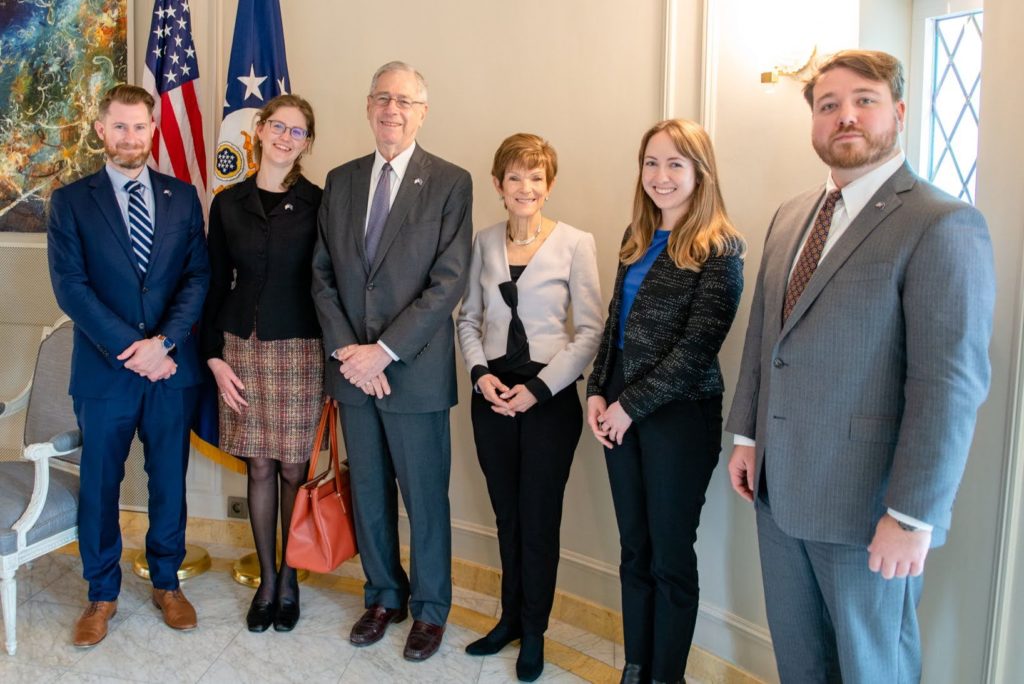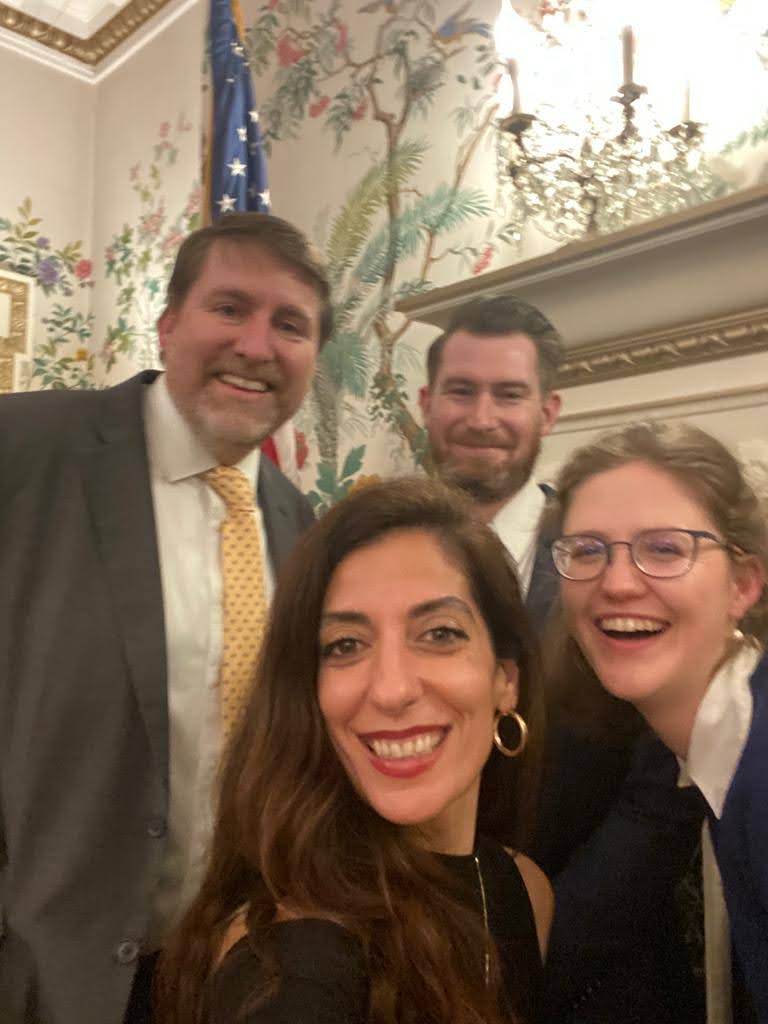When I arrived in Belgium for my Fulbright grant a few weeks before winter 2021 I was, about as literally as possible, a fish out of water. Upon getting my bearings and meeting locals I began to receive a common question: why did you choose Belgium? To this I had come up with a pithy reply: as a Fulbright Schuman grantee I could have gone anywhere in Europe to complete my study, but I didn’t read the fine print close enough and didn’t know that, so I chose Belgium! This is only partially true. I had, in fact, not read the fine print well enough, but in Brussels I had found an organization willing to take on my unusual study, and that was good enough for me. Plus, they have fries.

As I began the final weeks I began to receive a new question frequently: what did you think of Belgium? Well, I don’t regret it for a second, and I would do it again in a second. Allow me to explain.
Belgium. This interesting little country in the middle of Europe that is extremely dynamic yet no one can really put their finger on why or what makes it so. A country where everyone seems to not really want to be there yet no one ever actually wants to leave, yet everyone who lives there will defend it to the world. This seems to embody the idea of “Belgitude” one hears about often while living here. But Belgitude is more than these honorable yet conflicting ideals.
In the final weeks of my time in Belgium I began to really ruminate on some of the differences and similarities between the United States and Belgium. As a Schuman grantee we are responsible for thinking about the transatlantic ties between the US and EU, and Belgium has more similarities to the US than one might expect. Belgium is, like the US, a young country forged through uprisal against what was viewed as an oppressor state. Belgium threw off the reigns of the Netherlands in 1830 after a performance of the play La muette de Portici, in which an oppressed state rises up against an oppressor. In 1776 the US also rose up against Britain after years of strife and became independent. Both are young, independent countries.

If we were to fast forward to the current year, we would find even more similarities as both countries dealt with racial injustices, with Belgium in Congo and the US in the slave trade, both handling immigration issues, and both becoming political centers of gravity for their part of the world. However, as the US uses its young age as a crutch and excuse sometimes for its mishaps, Belgium uses it as a way to prove it can adapt. During my time in Belgium something I noticed time and again was an ownership of historical mistakes and an effort to not allow the tarnished parts of the past be washed away in retrospect. Take, for example, the current argument over the statue of King Léopold II in Brussels. The city believes the statue should be melted down amid controversy and reckoning over Belgium’s colonial past, yet activists and historians have pushed for a more nuanced approach to create a public space for the statue to educate on this history rather than erase it; and the city is listening to this suggestion (though no final decision has been made).
But this adaptation does not only apply to historical moments: Belgium has figured out how to become agile with decision making in this modern era. This can be seen through simple things, such as free train rides on heavy smog days, increase in green spaces due to following science about citizens needs, and even through the speedy implementation of measures to combat sexual harassment of women following demonstrations. Are these solutions all perfect? Of course not, but Belgium will also admit this. To me, this is a large part of Belgitude: accepting missteps and owning them.

Meanwhile, over our 244 years, the United States has had its moments of accepting and not hiding the past, but suddenly it seems we have forgotten where we came from as we focus on things such as banning books that offend, taking away rights of women, actively hindering the voting rights of minorities, and skewing the justice system to benefit the few that can afford to influence it. And when this is all found to be wrong? The US will say it is a growing pain of a young country. But these are incomprehensible sentences to write for a country like Belgium, and for many European countries in general. We can see in the analog of Belgium that being young is not an excuse for correcting the mistakes of the past.
I am back in the United States as my grant enters its final days and I am immediately struck by being back in the cacophony of news about things that do not push us forward as a country but hold us back. Before I left Belgium I had breakfast with a distinguished U.S. public servant who told me he believed the United States needed to follow Europe on a multitude of topics, and it is something that has stuck with me since our conversation. The US is an individualistic country that enjoys forging its own path and showing the world its success, but the US cannot move forward by attempting to hide our past and at the same time turn the country into some vision of paradise that only works for a small group of people.
My time in Belgium is something I will never forget. The experiences I had and friends I made will be with me forever, but the intangibles will also always be with me. It was more coincidence than anything that I ended up in Belgium, but in hindsight I doubt any other location would have been as interesting and dynamic for me to learn and grow. Both countries have work to do, but that is normal. I only hope that as a returned Fulbright I can bring some Belgitude back to the US and apply what I’ve learned to help us get ahead.
Jack Kelly is a graduate of Mercyhurst University’s Applied Intelligence program and currently a Data Investigator for Bank of America. Kelly’s master’s thesis, titled The Nightmare Scenario: Understanding the Plausibility of Terrorist Nuclear Weapon Creation and Use by Black Market and Dark Web Means, researched the likelihood of terrorists to use the Dark Web and black markets to obtain dangerous materials. His Fulbright research is intended to further document the methodologies, tools, and techniques used in open-source investigations by European Union investigators to track and follow nuclear material in black markets and on the Dark Web.
Articles are written by Fulbright grantees and do not reflect the opinions of the Fulbright Commission, the grantees’ host institutions, or the U.S. Department of State.
